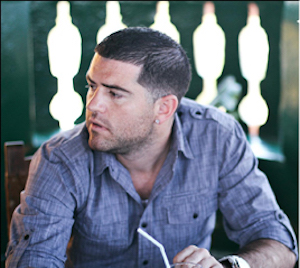
Cuba’s burgeoning tourist economy has become an object of study for several U.S. business school. Photo courtesy Cuba Educational Travel
In the last year, the staff at Cuba Educational Travel have fielded dozens of phone calls from American universities interested in setting up field trips to Cuba. Undergraduate business school administrators are eager to get their students on the ground to study first-hand Cuba’s burgeoning tourism industry and economy, says Collin Laverty, founder of the Washington, D.C.-based trip provider that organizes trips to the once- off-limits, economically isolated island nation. This academic year, Cuba Educational Travel will help to organize trips for seven undergraduate business schools, Laverty says, nearly double the number from last year.
“Cuba is an interesting place, especially for business schools,” Laverty says, “because it is really one of the only places in the world that’s a close, safe place for students to study a transitioning economy. Students tell us they want to be there before McDonald’s and Starbucks arrive.”
The increase in undergraduate business schools adding Cuba to their list of winter or spring break destinations comes amid a thawing of relations between U.S. and Cuba, highlighted by President Obama’s historic visit last March to the island 90 miles off the southern tip of Florida. He became the first U.S. president to visit the island since 1928. Schools planning trips to Cuba this academic year include Miami University’s Farmer School of Business, the University of Minnesota’s Carlson School of Management, and the University of Georgia’s Terry College of Business.
Students on the trips typically tour Havana, Laverty says, take in the cultural sights and, perhaps most importantly, interact first-hand with the small business owners and entrepreneurs trying to take advantage of Cuba’s burgeoning tourism industry, from new Airbnb providers to farmers experimenting with organic farming.
“It’s a communist country taking its first baby steps to becoming more capitalist,” says Peter Salzarulo, associate professor of management at the Farmer School who’ll be leading the undergraduate business school’s second trip to Cuba this January. “Cuba is a great case study because it’s kind of like how the world used to be when information technology wasn’t there. You can see how things used to be and how far we’ve come.”
AS EMBARGO LOOSENS, U.S. COMPANIES EYE OPPORTUNITIES
Indeed, interest in Cuba is strong amongst undergraduate business students eager to see how capitalism will play out now that U.S. and Cuba are on friendlier terms. Students traveling to Cuba this year will do so at a time when much is changing to make it easier for people to not only visit the country, but to conduct business there. For instance, the first commercial airline flights to Havana in more than five decades will resume in about a month-and-a-half, eventually making it easier for schools to book trips to the island; up until now, schools often had to wait until the last minute to book flights with charter companies that operate routes out of Miami, making it hard to iron out detailed itineraries beforehand. This month President Obama announced a loosening of the U.S. trade embargo on Cuba, paving the way for more U.S. companies to do business on the island and removing the $100 limit on bringing Cuban rum and cigars into the U.S.
Holly Alderman, the international business programs coordinator at the Terry College of Business, is organizing the school’s first trip to Cuba in March. She says student interest has been strong so far, with many viewing the trip as a once-in-a-lifetime opportunity; one student compared visiting Cuba now to the experience her mother had as a study-abroad student a generation ago when the Berlin Wall came down.
“Students know this isn’t going to be spring break on the beach,” Alderman says. “They’re keenly interested in getting there to learn about the business climate and where it is now, while it is still burgeoning.”












Questions about this article? Email us or leave a comment below.